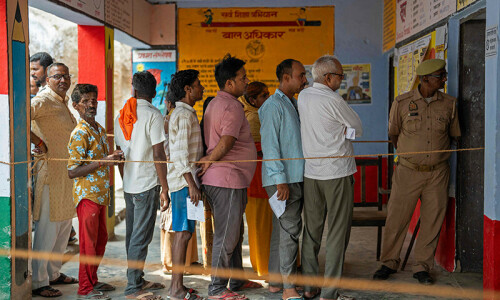AS summer drags on, there seems to be little respite for the people of Karachi where power cuts — scheduled and otherwise — are concerned. This is despite the fact that the prime minister himself has taken notice of the shambolic state of affairs, instructing his aides to take up the matter with K-Electric, the megalopolis’ sole power provider. However, despite assurances by the utility to officials, little has improved. Various political parties have also taken up cudgels against the power firm, accusing it of unscheduled and frequent load-shedding, as well as sending inflated bills to consumers. The Jamaat-i-Islami, PTI and MQM-P, amongst others, have either held protests in front of KE headquarters in the city, or taken out processions elsewhere to highlight the suffering people have to go through without electricity during the unforgiving Karachi summer. The federal energy ministry has clearly blamed KE for the mess, saying that the privatised utility is criticising the government for its own shortcomings. In a statement, the ministry said KE has not made the requisite investment in its distribution system, which is why it is not able to take extra power available on the national grid. For its part, KE has at times complained of a shortage of furnace oil, at others of short supply from the national grid.
For the common citizen, these technicalities matter little when many pay their power bill on time every month, yet do not get uninterrupted electricity supply, especially during the gruelling summer months. Moreover, with thousands of people self-isolating at home due to Covid-19, the issue assumes a more acute dimension. During protests, some parties have called for the re-nationalisation of KE; indeed, the federal planning minister said as much while meeting KE officials over the weekend, telling them the government could take control of the firm if it failed to get its act together. This is a debatable proposition, as the performance of government power companies in other parts of Sindh — Hesco, Sepco — is also far from exemplary. What is needed is clear communication between the state and KE focusing on the point that citizens must get what they pay for: uninterrupted power supply. If emergencies necessitate load-shedding, it must be kept to a bare minimum and publicised in advance. Otherwise, there is merit in the argument of opening up Karachi’s power distribution sector to more than one provider.
Published in Dawn, July 14th, 2020










































